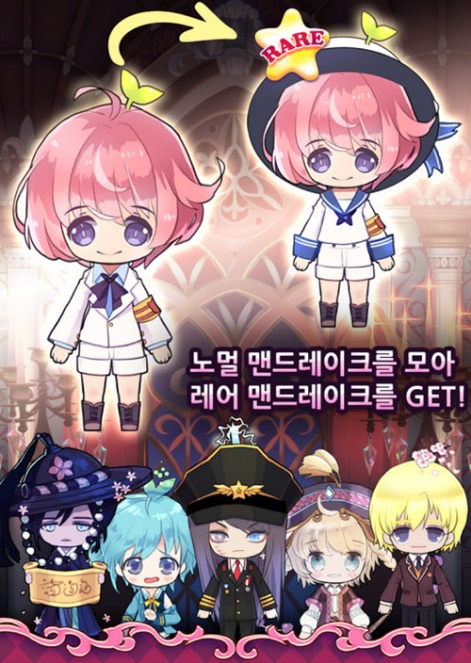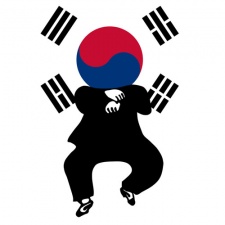Given the importance of the Asian region to the global mobile games industry, PocketGamer.biz is always looking to bring its readers better analysis from the region.
That's one of the reasons we have a dedicated section for Asian news.
With that in mind, we've partnered with Korean games agency Latis Global Communications to provide a regular opinion piece - we're calling it The News Gangnam Style.
Startups and indies have had a hard time getting off the ground in Korea.
Indies have traditionally been associated with being amateur and in the trend-driven culture of Seoul, the indie label doesn't always translate into the quirky viral love affairs as it does in the United States.
But the last six months have seen a change in these tides on the peninsula.
Indies have traditionally been associated with being amateur.
Startups have seen a major boost with $1 billion in invested in the first nine months of 2014, a near 10 percent increase from 2013. By the end of the year, as much as $1.5 billion is expected to be pumped into Korea's startups.
It signifies a paradigm shift in the way young, independent businesses are viewed, and there are now more opportunities for crowdfunding than ever before.
Power of the crowd
And already there have been successes. Korean crowdfunding platform Opportune, for example, raised $120,000 to help Bluetooth accessory maker Semilink, which allowed them to begin successfully exporting their products and increase revenue by 230 percent.
Cultural and art projects are now finally starting to see similar successes and mobile games are finally seeing some of the spotlight too.

Tumblbug tells you what they're all about in their slogan, "get smart, fund art". Launched in January 2011, it bears a striking resemblance to Kickstarter. The landing page features different project categories including comics and illustrations, music, photos, film, and games.
Contributing to projects is done in much the same way it is for Kickstarter. Users sign up with an account, or through Facebook, then select the project and donation amount. Payments can be made with credit cards or via bank transfer.
Once the payment is made, contributors get a message with information about what rewards they will receive for their contribution level.
Force multiple
Although hard numbers for data are not available, Tumblbug has been a big player in crowdfunding Korea's indie games, with 91 active game projects as of this writing, including a healthy portion of mobile games. Small companies like the husband and wife duo at Owlogue have used the platform with resounding success.
With a small budget, Owlogue was taking a conservative approach in marketing the third installment of their Mandrake series, Mandrake Boys. Working off the fanbase from their previous two titles, they turned to Tumblbug with a campaign to raise funds for voice recordings.
Though they started off with a modest request of just a two million Korean won (around $2,000), they ended up raising 15,957,011 won (over $15,000) from just 403 backers.

The campaign went viral on Twitter, hitting the top trending topics in Korea and drawing in new fans, even if they didn't contribute to the campaign.
Companies like Owlogue and Wispsoft signify an underlying shift in perspective for Korea.
In the end, Mandrake Boys made it to the top 40 grossing games in Google Play, and saw similar success on the Naver App Store. With successes on the domestic crowdfunding market, other indies are braving into the more global crowdfunding scene as well.
Going global
There are also plenty of examples of successful Asian companies finding funding on international crowdfunding platforms like Kickstarter and Indiegogo.
Indonesian-based studios, Touchten Games and Digital Happiness, both managed successful campaigns on the platforms, each surpassing their target goals. Now more Korean developers are starting to follow suit.
Realizing that competing in the local market might require more funds than they could possibly raise, Wispsoft, a three-man studio based out of Hanyang University, turned to Kickstarter to raise funds for their debut title, Spirit Sweeper.
Although Spirit Sweeper's campaign was ultimately unsuccessful in raising the funds, it did result in coverage on a number of prominent app sites including Toucharcade and AppAdvice, putting the game in the spot light of prospective gamers.
Regardless of their success on the platforms, companies like Owlogue and Wispsoft signify an underlying shift in perspective for Korea.
The start-up culture on the peninsula is burgeoning as both small business owners and government organizations aim to foster a more positive environment for young businesses. Regardless of their success, we are likely to see a lot more attempts from Korean companies to secure funding from crowdfunding during 2015.
Curtis File is the PR Coordinator for Latis Global Communications, a game agency in South Korea helping international game companies break into Korea, and domestic developers find success abroad.
Latis has worked on the localization strategy of games like Archeage, Maple Story, and the mobile hit Hello Hero.

















